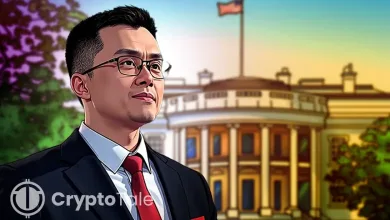CZ Warns Nations Racing Into BTC Late Will Face High Costs

- Governments intensify Bitcoin accumulation as CZ warns of rising global competition.
- Early national buyers secure cheaper BTC while late adopters face higher reserve costs.
- State mining expansion in Bhutan and Kazakhstan links infrastructure to reserve strategy.
Nations have intensified their push into Bitcoin, as Binance founder Changpeng Zhao (CZ) warned that rising government interest could collide with the asset’s decentralized design. The remarks came during a chat where he urged countries to secure reserves early. He said late movers could face higher costs as large economies accumulate first.
CZ Says Nations Should Move Early
CZ told the audience that the United States created urgency after President Donald Trump signed an executive order to form a national Bitcoin reserve. His comments led to broader scrutiny of how state accumulation affects availability.
He noted that early buyers secure larger allocations, while others pay higher prices later. This transition led him to note examples already in the trend. El Salvador continues to add to its holdings, while Bhutan expands reserves through hydro-powered mining.
However, CZ also linked this change to his current advisory work with governments, including Pakistan and Kyrgyzstan. He said officials there explored how digital assets could support diversification plans. His discussions covered custody, mining, and ways national reserves might include Bitcoin and BNB.
Luxembourg, for instance, allocated 1% of its sovereign wealth fund to Bitcoin and crypto ETFs. Meanwhile, Kazakhstan focused on state-backed mining to create its own reserve exposure. These actions show that governments now pursue digital assets as part of a fiscal strategy rather than speculation.
India’s Position
CZ then switched to India’s role, noting the country’s large youth population and tech capacity. He urged policymakers to speed up changes affecting custody rules and mining activity. He said India could strengthen its position by starting with a small reserve allocation, then scaling gradually as regulations settle.
He also linked India’s decisions to broader policy shifts. The 30% tax on crypto income still challenges users, and CZ said the rate slows participation. Binance’s collaborations with Indian fintech groups aim to address these concerns, although it acknowledged that ETF approvals could drive more institutional interest.
This focus on India connected back to concerns about retail users. CZ said state accumulation creates pressure for smaller investors who buy later at higher prices. He warned that both institutional and government purchases could tighten supply over time.
Confirmed Global Bitcoin Holdings
Several governments hold significant Bitcoin reserves. El Salvador holds 7,474 BTC, worth about $710 million at current prices. Bhutan has roughly 13,000 BTC mined through hydro energy.
The United States maintains more than 200,000 BTC, including seized assets, as discussions continue on formalizing a strategic reserve. On the other hand, Switzerland has prepared a referendum on official holdings, while Taiwan evaluates whether seized BTC could form part of national reserves.
Argentina, Brazil, and 16 European states reviewed strategic Bitcoin reserve proposals. Analysts at Galaxy Research projected that five additional nations could enter by year-end. These confirmed positions show a growing accumulation pattern.
Related: CZ Urges Crypto Investors to Verify FUD Amid Bitcoin Drop
Why Are Nations Accumulating Bitcoin?
Economic pressures have been key. Several governments have explored Bitcoin as a hedge against inflation and fiscal strain. Others view it as a way to diversify reserves away from the U.S. dollar.
Notably, ETF growth, mining expansion, and regulatory incentives also encouraged accumulation. Thailand’s 0% capital gains tax on Bitcoin is an example. Additionally, the accumulation is connected to emerging infrastructure.
Bhutan advanced its Gelephu City project with Bitcoin integration while miners across Kazakhstan and the UAE expanded government-linked facilities. These initiatives show how states now match reserve goals with operational plans.
CZ’s comments show how government demand influences Bitcoin’s growing accumulation. His warnings link early accumulation to long-term cost advantages as countries expand reserves. The growing list of stakeholders and changing U.S. policy support his view that a competitive race has already begun.




